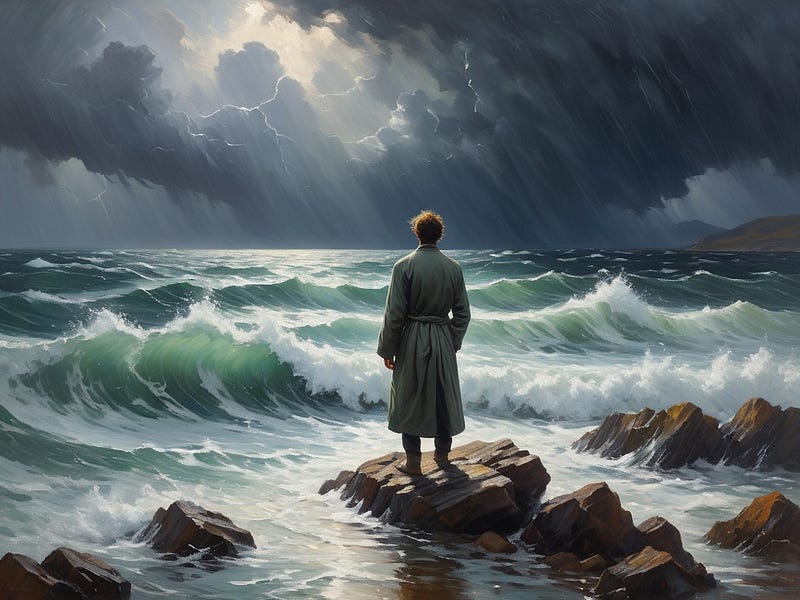
You’ve probably heard lines from Rudyard Kipling’s poem If — before, even if you didn’t know their origin. It’s one of those pieces of literature that sneaks into motivational speeches, graduation ceremonies, and even Instagram captions. But what’s so special about this 19th-century rhyme? Why does it resonate with both grizzled war veterans and stressed-out college students? Let’s dig into this poetic pep talk and find out.
Who Was Rudyard Kipling?
First, a quick primer on the poet. Rudyard Kipling (1865–1936) was a British author, journalist, and Nobel laureate who spent much of his life writing about British imperialism. He’s perhaps best known for The Jungle Book, that delightful romp through colonial-era wildlife that Disney turned into an earworm-laden animation. But Kipling’s works weren’t all child-friendly jungle adventures; his portfolio also included some deeply philosophical pieces, like If — .
A Snapshot of Kipling’s History
Born in British India, Kipling soaked up a multicultural world that influenced his stories. He returned to England for schooling but later bounced between continents — India, South Africa, the United States. His career was prolific, but his legacy remains divisive due to his support of British imperialism. Love him or leave him, there’s no denying the literary muscle behind his work.
What’s the Deal with If — ?
Written in 1895 and first published in 1910, If — is essentially a four-stanza checklist for resilience. Kipling supposedly wrote it as advice for his son, John, but the poem’s wisdom transcends any single relationship. It’s about keeping your head in chaos, staying humble when you succeed, and having the guts to start over when things fall apart.
Here’s the kicker: the poem manages to feel universal while being intensely personal. It’s a pep talk that feels tailor-made for whoever’s reading it.

The Poem, In Full
Yes, we can share the entire text. Why? Because Kipling’s works, including If — , are in the public domain. Here’s the poem in all its glory:
If you can keep your head when all about you
Are losing theirs and blaming it on you,
If you can trust yourself when all men doubt you,
But make allowance for their doubting too;
If you can wait and not be tired by waiting,
Or being lied about, don’t deal in lies,
Or being hated, don’t give way to hating,
And yet don’t look too good, nor talk too wise:
If you can dream — and not make dreams your master;
If you can think — and not make thoughts your aim;
If you can meet with Triumph and Disaster
And treat those two impostors just the same;
If you can bear to hear the truth you’ve spoken
Twisted by knaves to make a trap for fools,
Or watch the things you gave your life to, broken,
And stoop and build ’em up with worn-out tools:
If you can make one heap of all your winnings
And risk it on one turn of pitch-and-toss,
And lose, and start again at your beginnings
And never breathe a word about your loss;
If you can force your heart and nerve and sinew
To serve your turn long after they are gone,
And so hold on when there is nothing in you Except the Will which says to them: “Hold on!”
If you can talk with crowds and keep your virtue,
Or walk with Kings — nor lose the common touch,
If neither foes nor loving friends can hurt you,
If all men count with you, but none too much;
If you can fill the unforgiving minute
With sixty seconds’ worth of distance run,
Yours is the Earth and everything that’s in it,
And — which is more — you’ll be a Man, my son!

What Does It All Mean?
At its core, If — is about balance — handling life’s highs and lows without losing your cool. It’s a call to cultivate resilience, humility, and integrity. Each stanza tackles a different life skill:
- Keep Calm and Carry On: Don’t lose your head when everyone else is losing theirs.
- Stay Grounded: Balance ambition with humility, and success with equanimity.
- Take Risks: Go all in, but don’t cry over spilled milk when it doesn’t pan out.
- Embrace Humanity: Relate to kings and commoners alike without compromising your values.
A Modern Twist: If Kipling Were a Rapper
If you’re wondering how If — would sound as a modern rap, here’s a quick take:
If you’re steady when the world’s all shaky and shady,
If you’re calm when the haters throw shade daily.
If you dream, but your dreams don’t own your grind,
And you think, but don’t get trapped in your mind.
If you flex when you’re up, but don’t flaunt your clout,
And you’re chill when your wins flip to losses, no doubt.
If you’re loyal to the block, but you walk with kings,
You’ll own the world, my guy — crown, chain, and rings.
Final Thoughts
If — endures because it taps into something timeless: the struggle to be a good person in a messy world. It doesn’t pretend life is easy; instead, it challenges you to rise to the occasion — over and over again.
So, what do you think? Does If — still hold up as a guide to modern life? Let me know in the comments. Oh, and if you liked this post, hit that follow button. Your feed deserves more poetry.

Simplified AI Art Prompt
“An impressionist depiction of a lone figure standing calmly amidst a chaotic storm, symbolizing resilience and inner peace.”